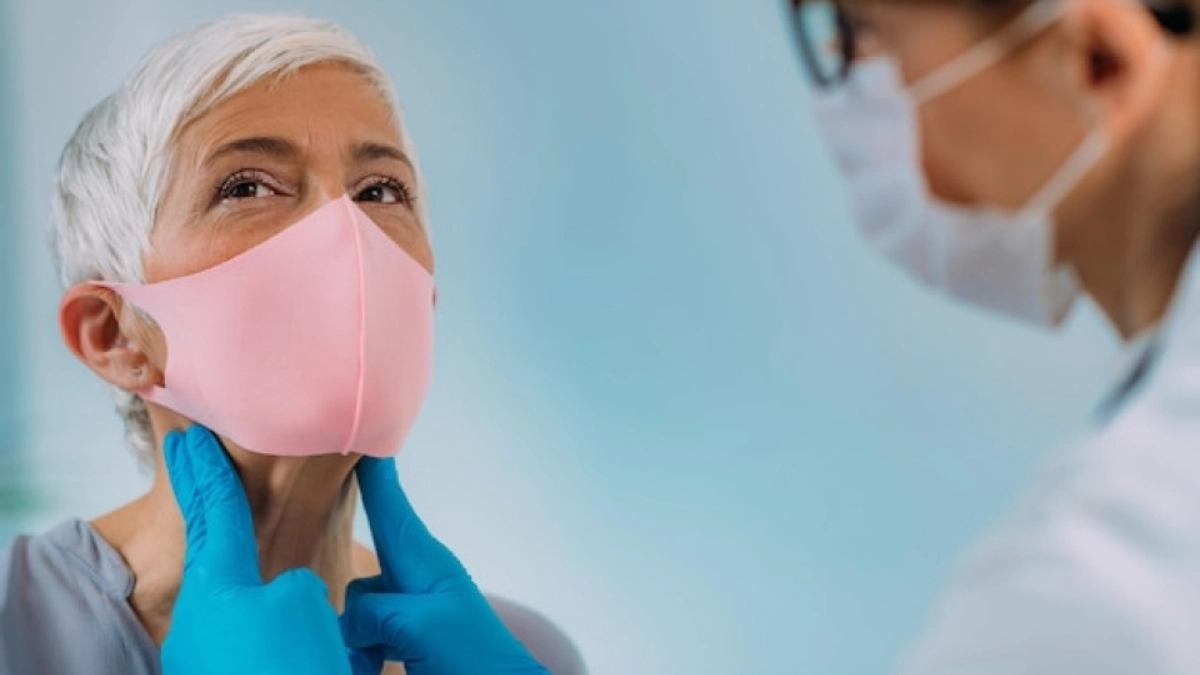Understanding the complexities of salivary gland cancer treatment in Turkey requires an overview of various therapeutic options and related medical knowledge. Our goal is to provide a detailed, comprehensive resource that not only informs but also empowers patients and their loved ones during this challenging journey.
Insights into Salivary Gland Cancer
Salivary Gland Anatomy
The salivary glands produce saliva, aiding in digestion and infection resistance. There are three pairs of major salivary glands:
- Parotid Glands: In front of and below the ears.
- Sublingual Glands: Under the tongue.
- Submandibular Glands: Beneath the jawbone.
Minor salivary glands line the mouth, nose, and larynx, and cancers often initiate in the palate.
Understanding Advanced Salivary Gland Cancer
When salivary gland cancer spreads to other body parts, it is considered advanced. While surgery alone cannot cure advanced cancer, it can alleviate symptoms and control disease progression. Radiotherapy and chemotherapy remain crucial components of the treatment regimen.
Symptoms to Watch For Salivary Gland Cancer
Salivary gland cancer symptoms include:
- Painless lumps around the ear, cheek, jaw, or mouth.
- Ear fluid drainage.
- Difficulty swallowing.
- Facial muscle weakness or numbness.
- Persistent facial pain.
Diagnostic Procedures
Diagnostic tests for salivary gland cancer include:
- MRI and CT Scans: Imaging to observe tumors.
- PET Scans: Identify active cancer cells using radioactive glucose.
- Endoscopy: Visual examination of the mouth, throat, and larynx.
- Biopsy: Tissue sampling to detect cancer cells, with fine needle aspiration (FNA) being common.
Because salivary gland cancer diagnosis can be intricate, tissue samples should be reviewed by experienced pathologists.
Factors Affecting Prognosis and Treatment
Prognosis and treatment options hinge on:
Cancer stage and size.
Affected salivary gland type.
Cellular characteristics.
Patient’s age and health status.
Stages of Salivary Gland Cancer
Stage 0 (Carcinoma in Situ)
In stage 0, abnormal cells are present in the lining of the salivary ducts. These cells have the potential to become cancerous and invade nearby tissues. This stage is also known as carcinoma in situ.
Stage I
Cancer is confined within the salivary gland and is 2 centimeters or smaller in size.
Stage II
The cancer remains within the salivary gland but is larger than 2 centimeters and not exceeding 4 centimeters.
Stage III
- The tumour exceeds 4 centimetres and/or has invaded soft tissues surrounding the salivary gland.
- Tumor of any size with potential involvement of one lymph node (up to 3 centimetres) on the same side of the neck without lymph node cancer extension.
IV Stage
Stage IVA
Cancer may have spread to areas like the skin, jawbone, ear canal, or facial nerve. It may involve one or more lymph nodes on either side of the neck, but nodes are not larger than 6 centimetres.
Stage IVB
Cancer can involve a lymph node larger than 6 centimetres or metastasize to vital structures such as the skull base or carotid artery. It often extends beyond the lymph nodes to other areas on either or both sides of the neck.
Stage IVC
Cancer has metastasized to distant parts of the body, such as the lungs.
Salivary Gland Cancer Treatment Options in Turkey
Deciding on the Best Treatment Plan
A multidisciplinary team (MDT) typically recommends the best care plan for salivary gland cancer patients. This team may include:
- Oral and Maxillofacial Surgeon: A specialist in surgeries of the face, mouth, and jaw.
- Oncologists: Both medical (cancer drugs) and clinical (radiotherapy) oncologists.
- Clinical Nurse Specialist: Provides care and support throughout the treatment process.
- Pathologist: Examines tissues removed during surgery.
- Speech and Language Therapist: Assists if treatment affects speech or swallowing.
- Radiologist: Coordinates imaging studies such as scans and X-rays.
- Dietitian: Offers guidance on nutrition and dietary needs.
Your treatment strategy will depend on:
- The type and stage of salivary gland cancer you have.
- The appearance of cancer cells under a microscope.
- The potential impact on your speech, chewing, and swallowing.
- Your overall health and fitness.
Surgery for Salivary Gland Cancer
Surgery is the primary treatment method for salivary gland cancer in Turkey, especially effective for early-stage cancers. The surgical approach will depend on:
- Tumour Size: Larger tumours may require more extensive surgery.
- Tumor Location: Tumors in deeper gland parts are more challenging to remove.
- Lymph Nodes: Surgery may involve removing nodes around the salivary gland or in the neck, known as selective or modified radical neck dissection.
Surgery to Remove Lymph Nodes in the Neck
Removing lymph nodes helps define the cancer stage and reduce the risk of recurrence. This procedure, called selective neck dissection, may evolve into a modified radical neck dissection if the cancer has spread.
Radiotherapy for Salivary Gland Cancer
Radiotherapy utilizes high-energy rays to target and kill cancer cells. Post-surgery radiotherapy helps eliminate residual cancer cells and reduce recurrence risk. Radiotherapy may be the primary treatment when surgery isn’t feasible due to tumour location, patient health, or advanced cancer stages.
Chemotherapy for Salivary Gland Cancer
Chemotherapy uses cytotoxic drugs to destroy cancer cells. Although less effective than surgery and radiotherapy for salivary gland cancer, it’s used for advanced cases, recurrences, or within clinical trials.
Risk Factors
Factors influencing the risk of developing salivary gland cancer include:
- Older Age
- Radiation Exposure: History of head and neck radiation therapy.
- Workplace Exposures: Contact with certain substances.
Treatment Options Overview
Types of Treatment
Patients with salivary gland cancer benefit from a variety of treatments, often personalized to their needs and specific cancer characteristics:
- Surgery: Removal of cancerous tissues, often followed by adjuvant therapy.
- Radiation Therapy: External or specialized radiation, including fast neutron or photon-beam radiotherapy.
- Chemotherapy: Systemic treatment using anti-cancer drugs.
- Clinical Trials: Exploring new treatments, including radiosensitizers to enhance the effectiveness of radiation therapy.
Multidisciplinary Approach
Patients should receive treatment from a specialized team including:
- Medical and Radiation Oncologists
- Head and Neck Surgeons
- Speech Therapists
- Dietitians
- Dentists
- Rehabilitation Specialists
- Psychologists
Detailed Treatment Phases for Salivary Gland Cancer in Turkey
Treatment of Stage I
Low-Grade Cancer
- Surgery, optionally followed by radiation.
- Fast neutron radiation therapy is an alternative.
High-Grade Cancer
- Surgery, optionally followed by radiation.
- Clinical trials for chemotherapy or new local therapies.
Treatment of Stage II
Low-Grade Cancer
- Surgery with or without adjunct radiation.
- Additional radiation alone.
- Chemotherapy as a supplementary treatment.
High-Grade Cancer
- Surgery with or without further radiation.
- Fast neutron or photon-beam radiation therapy.
- Clinical trials involving chemotherapy or enhanced radiation methods using radiosensitizers.
Treatment of Stage III
Low-Grade Cancer
- Surgery, potentially followed by lymphadenectomy and radiation.
- Direct radiation or fast neutron radiation.
- Clinical trials including chemotherapy.
High-Grade Cancer
- Surgery with subsequent lymphadenectomy and radiation.
- Specialized radiation therapies or clinical trials aimed at symptom relief and disease control.
Treatment of Advanced Stages (IVA, IVB, IVC)
For advanced stages, treatment combines:
- Fast neutron or photon-beam radiation therapy.
- Clinical trials with chemotherapy, potentially integrated with radiation.
Contact Us
At Avicenna International Hospital, we specialize in comprehensive care for salivary gland cancer treatment in Turkey. Moreover, our expert team is dedicated to providing personalized treatment plans tailored to each patient’s unique needs. Contact us today to begin your journey toward healing and hope.
Yes, especially if detected early. Treatment options such as surgery and radiotherapy can be very effective.
Survival rates vary based on cancer stage, type, and individual health. Many patients live for years, especially with early-stage detection and treatment.
Stage 4 is advanced cancer that has spread to nearby tissues, lymph nodes, or distant organs. Treatment focuses on managing symptoms and slowing progression.
The Growth rate varies. Some types grow slowly and are detected early, while others may be more aggressive. Regular monitoring and prompt treatment are critical.







